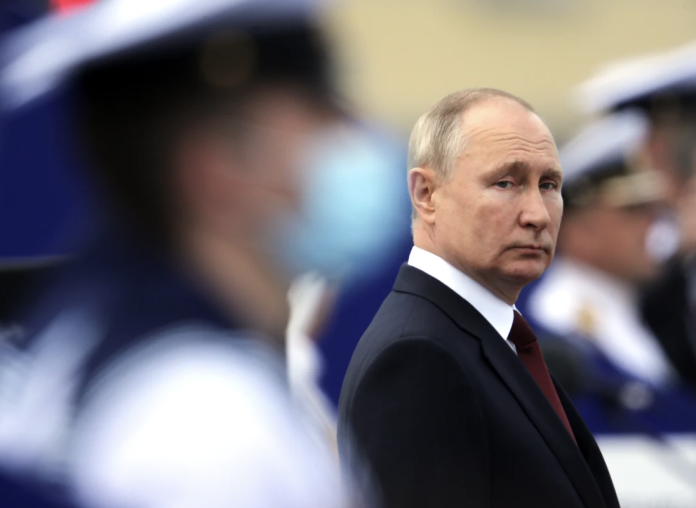The International Criminal Court issued an arrest warrant Friday for Russian President Vladimir Putin, accusing him of being responsible for war crimes in Ukraine.
Putin committed the “war crime” of overseeing the unlawful abduction and deportation of children from Ukraine to Russia, the court said in a news release.
“There are reasonable grounds to believe that Putin bears individual criminal responsibility for the aforementioned crimes,” the court, based in The Hague, Netherlands, said its pre-trial judges had assessed.
It added that Putin had failed to “exercise control properly over civilian and military subordinates who committed the acts, or allowed for their commission, and who were under his effective authority and control.”
Maria Alekseyevna Lvova-Belova, Putin’s presidential commissioner for children’s rights, is also alleged to have committed similar crimes, the ICC said.
Karim Khan, who serves as chief prosecutor of the ICC, said in a statement that the evidence indicates that Putin and Lvova-Belova “bear criminal responsibility” for the deportation of Ukrainian children to Russia. “We must ensure that those responsible for alleged crimes are held accountable and that children are returned to their families and communities,” he said.
Putin’s press secretary Dmitriy Peskov rejected the findings of the international court, “We do not recognize this court, we do not recognize the jurisdiction of this court. This is how we treat this,” he said in a Telegram post.
While warrants are often issued in secret “to protect victims and witnesses and also to safeguard the investigation,” the release said that the court was “mindful that the conduct addressed in the present situation is allegedly ongoing, and that the public awareness of the warrants may contribute to the prevention of the further commission of crimes.”
From the early days of the invasion last February, Kyiv has accused Russia of forcibly transferring children and adults.
Russian officials have consistently denied the accusations, calling them a “fantasy” aimed at discrediting Russia. Russia’s embassy to the United States said last month that the country had taken in children who were forced to flee the fighting.
The warrant for Putin comes a day after a U.N.-backed inquiry cited Russian attacks against civilians in Ukraine, including systematic torture and killing in occupied regions, among potential issues that amount to war crimes and possibly crimes against humanity.
Ukrainian Prosecutor General Andriy Kostin welcomed the decision on Twitter. “Over 16,000 incidents of forcible deportation of children are investigated in Ukraine,” he said. “We fear the real numbers may be higher.”
“Russia is literally tearing apart our future. We’ll do our utmost to bring children home and hold every perpetrator of the horrendous crimes accountable,” he added.
If Putin were to leave Russia, Putin “would be arrested and surrendered to ICC,” he said. “World leaders will think twice before shaking his hand or sitting with Putin at the negotiating table. It’s another clear signal to the world that the Russian regime is criminal.”
Ukraine is not a member of the court, but it has granted the ICC jurisdiction over its territory and ICC prosecutor Karim Khan has visited four times since opening an investigation a year ago.
The U.S. does not recognize the court’s jurisdiction and Moscow formally withdrew its signature from the founding statute of the ICC in November 2016, a day after the court published a report classifying its annexation of Crimea as an occupation.
While it is unlikely that Putin will end up in prison, it further labels the country and its leader as a pariah, said Wayne Jordash, who is leading teams of Ukrainian and international prosecutors and investigators in Ukraine. That will affect Putin’s ability to travel and could hinder Russia diplomatically.
“It now puts pressure on any country, which is a signatory to the ICC, to the Rome Statute, to arrest him if he ever travels to those countries,” he said. “These are countries which may in the past have been somewhat reserved about criticizing or voting in the General Assembly against Russia’s invasion. So I think this puts a huge amount of pressure on Putin, too.”

